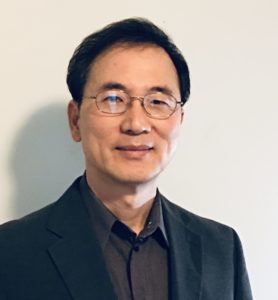
Teaching in Times of the Pandemic Crisis: Embracing Care and Responsibility for Students
When Covid-19 became a pandemic, I was not ready to make a transition to online teaching out of the blue, in the middle of the course period, but I felt a great responsibility for my students since they were going through upheavals. So, I made a 3-minute video for them and shared it through email; I encouraged them to stay safe and strong. This initial video brought a message of hope and care to them. In these tumultuous times, I see myself as pastor, theologian, and scholar. I also sent a kind, informative email to them to make sure we were all on the same page in terms of the remaining course schedule. I reached most of my students through email, but three of them did not respond for two weeks. I was anxious about them and looked for them like a shepherd who has lost a sheep. I tried to contact them every way I could: by phone, through school staff, through social media. My attempt failed. Two weeks later, they responded to me with descriptions of personal and family crisis. I was so happy that all of my students were safe.
My philosophy during this time is to streamline teaching or learning, to minimize the use of technology other than that with which they are already familiar (e.g., email and the Learning Management System [LMS]). I did not ask them to learn new online skills or to set up a Zoom account. In fact, “Online Meetings” was available through our school’s LMS. All I emphasized was the importance of fast communication through email. In this traditional tech way, I maintained close contact with them and understood their individual situations.
With this teaching philosophy in mind, I prepared a weekly PPT with audio narrations (like lecturing in person, unlike just reading the text) and uploaded it to our LMS, along with the new course schedule and detailed instructions. Then, the students were asked to review my PPT several times and submit a response paper to the weekly question via email. They followed my instructions very well, but some of them were struggling, so I proposed weekly online tutoring times during which I could speak with some of them online “face-to-face.” One time I had 10 students in our virtual room and talked with them about various topics they brought up. It was a good, humbling, and eye-opening experience. We felt our close community in this together.
I learned how to make a podcast with a smartphone application and created podcasts for my students. I ended up making a total of 13 podcasts, each an average of 6-7 minutes. They were like songs with critical information for the week. Each podcast had its style or color with background music. My students loved them.
It's an irony that this unusual environment allowed me to obtain the necessary online teaching skills which I have wanted for a long time. While virtual teaching won’t replace face-to-face meetings, in the future we may serve some “special” students who cannot make class every time. I think we may need to use hybrid courses often to maximize the student learning experience.
Now I am sitting at the chair at my home and thinking about my students who are going through this pandemic. I had the joy of reading their journals of “Reading and Learning,” which is part of the required assignments. They took journaling seriously and wrote it in creative ways. Below are some excerpts:
I really have to say Dr. Kim; I like the way you have really made this transition WORK! You have kept us intact with emails, weekly videos, and now the podcasts. This has been a very smooth transition; you have answered a lot of our questions and concerns on your podcasts and you have been willing to pour out to us all that you have learned over your career. I love the part where you say 'Hello, this is Dr. Kim speaking to the World!'
I am so thankful for the power points because you say more than you write on the slides. I can re-listen and that’s one of the luxuries we do not get in person. In coming to class, we hear it once, and then it's off to the next thing. However, with the podcasts and blogs, it's more personal and within reach. The past two weeks your voice has become a household voice, and I do not use any headphones so when I am listening to audio.
Bless you, Dr. Kim, I just wanted to give you a quick “shout out”, since we have been schooling online. I call it a pleasure to get up in the mornings and get my cup of coffee and listen to your podcasts or re-listen to your PowerPoint with audio!
Leave a Reply